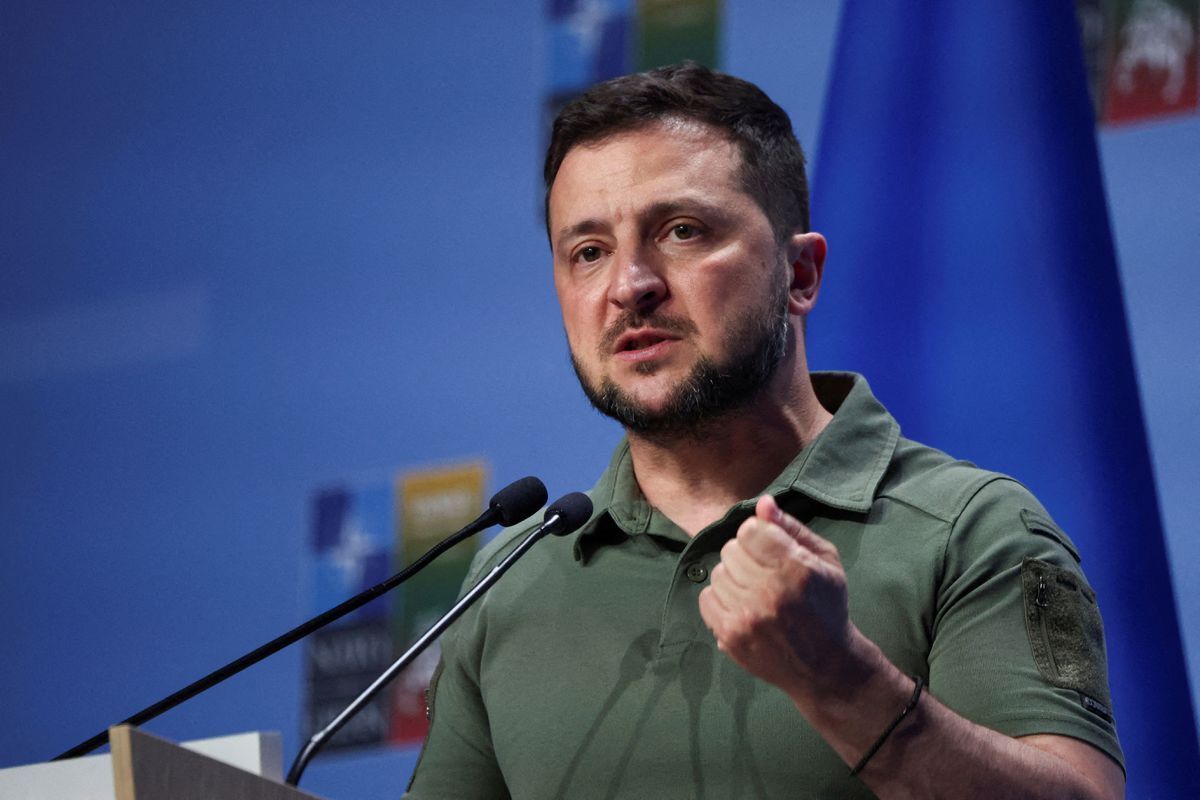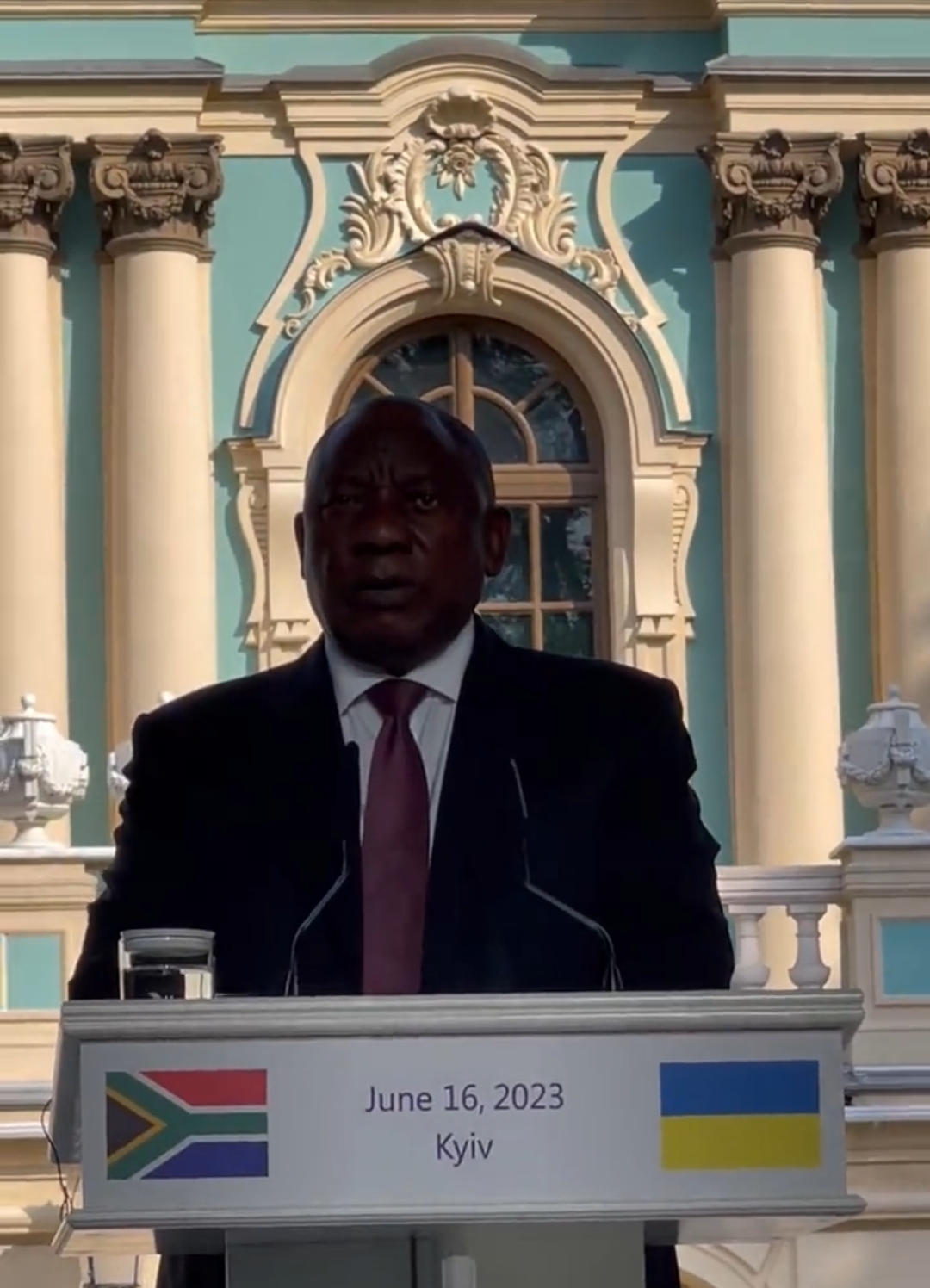Media Lens
(...) Every time US-UK-NATO launches a war of aggression on Iraq, Libya, Syria – whoever, wherever – our TV screens and front pages fill with ‘beautiful pictures’ of missiles blazing in pure white light from ships. This is ‘Shock And Awe’ – we even imagine our victims ‘awed’ by our power. (...)
By contrast, the morning after Russia launched its war of aggression on Ukraine, front pages were covered, not in tech, but in the blood of wounded civilians and the rubble of wrecked civilian buildings. (...)
Political analyst Ben Norton commented:
‘Russia’s intervention in Ukraine has gotten much more coverage, and condemnation, in just 24 hours than the US-Saudi war on Yemen has gotten since it started nearly 7 years ago… US-backed Saudi bombing now is the worst since 2018’
This is no small matter. Norton added:
‘An estimated 377,000 Yemenis have died in the US-Saudi war on their country, and roughly 70% of deaths were children under age 5’
Some 15.6 million Yemenis live in extreme poverty, and 8.6 million suffer from under-nutrition. A recent United Nations report warned:
‘If war in Yemen continues through 2030, we estimate that 1.3 million people will die as a result.’ (...)
We can be sure that Instagram, YouTube and Tik Tok will never be awash with the sentiment: ‘I stand with Yemen!’
As if the whole world belongs to ‘us’, our righteous rage on Ukraine is such that we apparently forget that we are not actually under attack, not being bombed; our soldiers and civilians are not being killed. Nevertheless, RT (formerly Russia Today), Going Underground and Sputnik have been shut down on YouTube and Google as though the US and UK were under direct attack, facing an existential threat. (...)
So how did we get here? State-corporate news coverage has some glaring omissions. (...)
In a rare example of dissent in the Guardian, Ted Galen Carpenter, senior fellow for defence and foreign policy studies at the Cato Institute, wrote this week:
‘The Obama administration’s shockingly arrogant meddling in Ukraine’s internal political affairs in 2013 and 2014 to help demonstrators overthrow Ukraine’s elected, pro‐Russia president was the single most brazen provocation, and it caused tensions to spike. Moscow immediately responded by seizing and annexing Crimea, and a new cold war was underway with a vengeance…’
Carpenter concluded:
‘Washington’s attempt to make Ukraine a Nato political and military pawn (even absent the country’s formal membership in the alliance) may end up costing the Ukrainian people dearly.
‘History will show that Washington’s treatment of Russia in the decades following the demise of the Soviet Union was a policy blunder of epic proportions. It was entirely predictable that Nato expansion would ultimately lead to a tragic, perhaps violent, breach of relations with Moscow. Perceptive analysts warned of the likely consequences, but those warnings went unheeded. We are now paying the price for the US foreign policy establishment’s myopia and arrogance.’ (...)
The New Yorker magazine describes political scientist John Mearsheimer as ‘one of the most famous critics of American foreign policy since the end of the Cold War’:
‘For years, Mearsheimer has argued that the U.S., in pushing to expand NATO eastward and establishing friendly relations with Ukraine, has increased the likelihood of war between nuclear-armed powers and laid the groundwork for Vladimir Putin’s aggressive position toward Ukraine. Indeed, in 2014, after Russia annexed Crimea, Mearsheimer wrote that “the United States and its European allies share most of the responsibility for this crisis.”’ (...)
In 2014, then US Secretary of State John Kerry had the gall to proclaim of Russia’s takeover of Crimea:
‘You just don’t in the 21st century behave in 19th century fashion by invading another country on completely trumped up pretext.’
Senior BBC correspondents somehow managed to report such remarks from Kerry and others, without making any reference to the West’s invasions of Iraq and Afghanistan. (...)
Noam Chomsky highlights one obvious omission in Western media coverage of Ukraine, or any other crisis involving NATO:
‘The question we ought to be asking ourselves is why did NATO even exist after 1990? If NATO was to stop Communism, why is it now expanding to Russia?’ (...)
Conclusion – ‘Whataboutism’ Or ‘Wearenobetterism’?
Regardless of the history and context of what came before, Russia’s invasion of Ukraine is a major international crime and the consequences are hugely serious.
Our essential point for over 20 years has been that the public is bombarded with the crimes of Official Enemies by ‘mainstream’ media, while ‘our’ crimes are ignored, or downplayed, or ‘justified’. A genuinely free and independent media would be exactly as tough and challenging on US-UK-NATO actions and policies as they are on Russian actions and policies.
To point out this glaring double standard is not to ‘carry water for Putin’; any more than pointing out state-corporate deceptions over Iraq, Libya and Syria meant we held any kind of candle for Saddam, Gaddafi or Assad. (...)
Complete article

The American population was bombarded the way the Iraqi population was bombarded. It was a war against us, a war of lies and disinformation and omission of history. That kind of war, overwhelming and devastating, waged here in the US while the Gulf War was waged over there.’ (Howard Zinn, ‘Power, History and Warfare’, Open Magazine Pamphlet Series, No. 8, 1991, p.12)
Tags: #russia #putin #ukraine #zelenskiy #freedom #war #war_propaganda #fake_news #disinformation #propaganda #john_pilger #stop_the_war_coalition #nato #syria #assad #chemical_weapons #imperialism #anti-imperialism #democracy #dictatorship #international_law #iraq #media #news #journalism #journalist #coporate_media #mainstream_media #RT #Russia_Today #Going_Underground #Sputnik #censorship #freedom-of_the_press #afghanistan #libya

/cloudfront-us-east-2.images.arcpublishing.com/reuters/XFEITE4A4RJIHKKBAKSOAV3CAQ.jpg)



